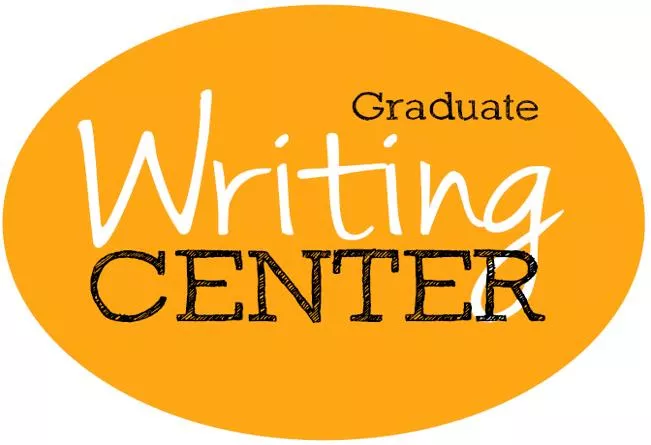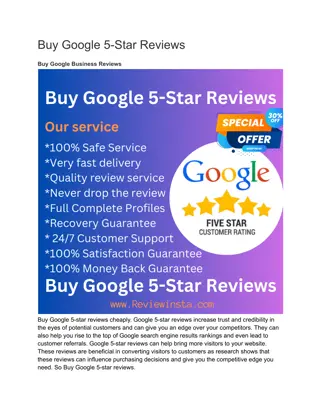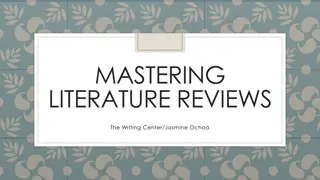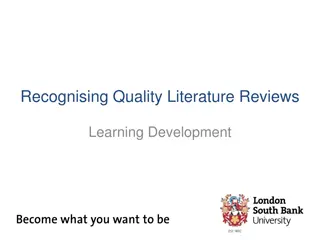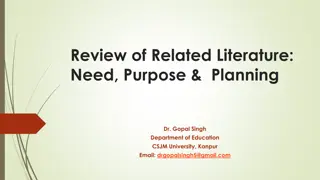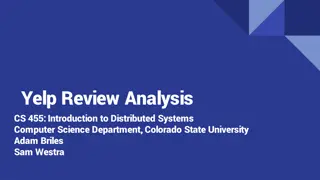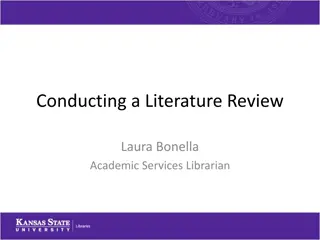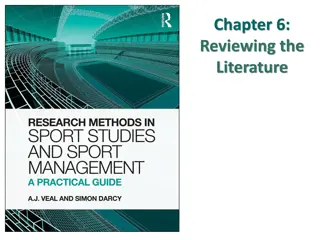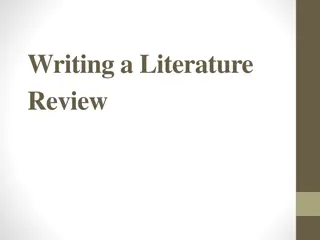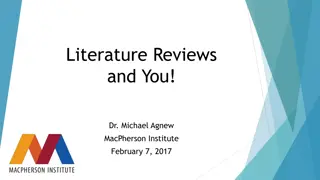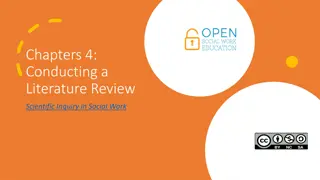Mastering Literature Reviews: Essential Strategies for Success
Explore the vital goals and steps involved in crafting a compelling literature review, from establishing importance to identifying gaps and contributing to research. Learn to find focus, establish relevance, and define a frame of reference for your research question while navigating the complexity of synthesizing existing scholarship.
Download Presentation

Please find below an Image/Link to download the presentation.
The content on the website is provided AS IS for your information and personal use only. It may not be sold, licensed, or shared on other websites without obtaining consent from the author. Download presentation by click this link. If you encounter any issues during the download, it is possible that the publisher has removed the file from their server.
E N D
Presentation Transcript
UVM GRADUATE WRITING CENTER ALL ABOUT LITERATURE REVIEWS https://www.uvm.edu/gradwriting
Goals of a Literature Review Establish importance of topic Evaluate existing research Important trends (organize/synthesize) Strengths/weaknesses (analyze/evaluate) Gaps Spotlight the contribution of your research Tell the story that leads to the gap and the question/approach you propose Provide context and detail that contributes to a persuasive narrative (why this gap matters, the promise of your question/approach)
Composing a Literature Review Which are hardest for you? Finding/keeping focus Determining/communicating relevance Organization/Synthesis vs. summary
CONFUSION Create a frame of reference for your research question by telling the story of research so far that is relevant to and leads to your question RESEARCH & THEORY ON A SPECIFIC PROBLEM Defining a Frame of Reference for Your Research Question Your ? CONCLUSION FURTHER LINES OF INQUIRY Adapted from Keith Hjortshoj sWriting from A to B CONFUSION
Activity: Finding Focus What is the research question or gap your literature review helps to define? Why should we study this topic? What will your research contribute? Briefly tell the story of what has happened in this field to led you to this research. What do researchers already know about this? What do they not know? What key conversations or trends lead to the gap you ve identified and approach you propose?
Establishing Relevance Establish your question s relevance by placing it within existing scholarship and theories in your field(s) and also by describing the problem or situation ( The World ) you and scholars in your field(s) are concerned with. Adapted from Keith Hjortshoj sWriting from A to B
Activity: Establishing Relevance If a novice (e.g., an intelligent and interested but nonacademic family member or friend) asked what you are working on and why it matters, how would you respond? If you were are asked to give a guest lecture for first-year undergrads about your field of inquiry and its importance, what would your lecture outline look like?
Annotated Bib v. Literature Reviews Annotated Bibliography Literature Review Source 1 Citation What this source says. Introduction (frame of reference for your research question) Supporting paragraph 1 Source 1 Source 2 Source 2 Citation What this source says. Supporting paragraph 2 (and 3, 4 etc.) Source 3 Source 2 Source 3 Citation What this source says. Research Question
Options for Organizing Literature Reviews Topical: Three important areas of this field have received attention: A , B , C . A has been approached from two perspectives: F and G The most important developments in terms of B have been C has also been an important area of study in this field. Debate: There have been two (three, four, etc.) distinct approaches to this problem The first model, advanced by A and G, posits The second model, developed by B, C, and F, argues that the first model is wrong Instead, the second model claims Trends over Time: This subject was first studied by W, who argued In (date), X modified/extended/co ntradicted X s work by Today, research by Y and Z represents the current state of the field .
Activity: Organizing a Literature Review with Concept Mapping Source 2 Source 1 Source 5 Theme Source 4 Theme Source 3 Source 4 Problem/ Concern Source 2 Theme Theme Source 5 Source 4 Source 1 Theme Source 3 Source 5 Source 2
Activity: Organizing a Literature Review with Theme Buckets Paper 1 Papers 1, 2 Theme 1 Theme 2 Theme 3
Talk It Out! www.uvm.edu/gradwriting uvm.mywconline.net
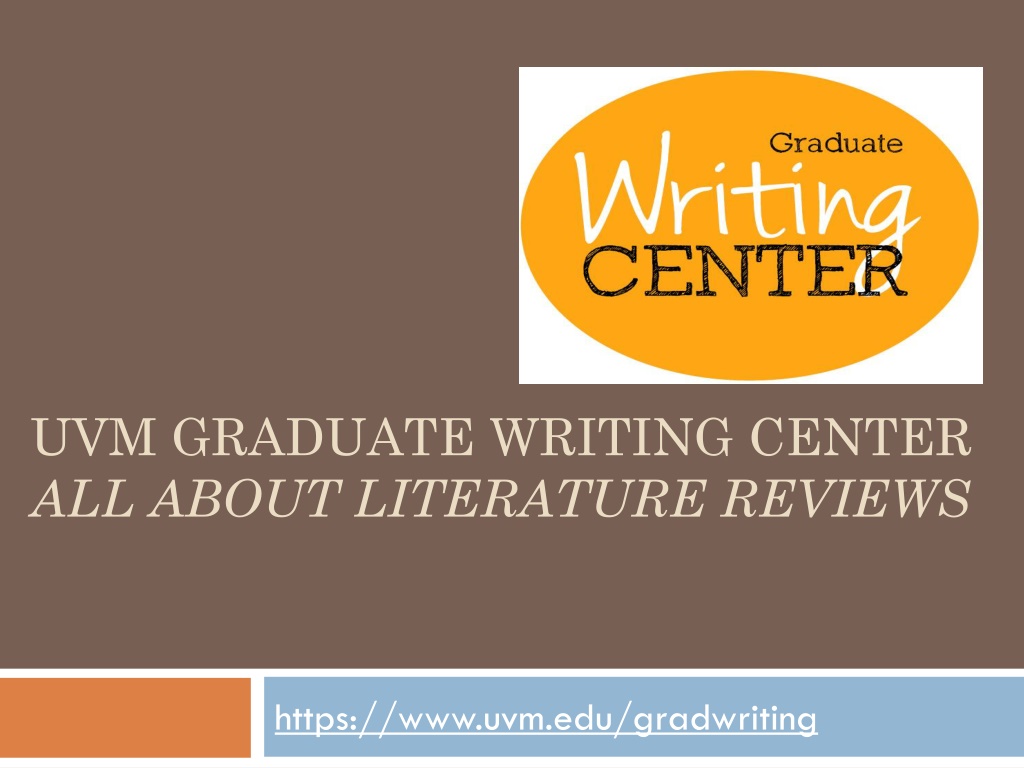
 undefined
undefined


